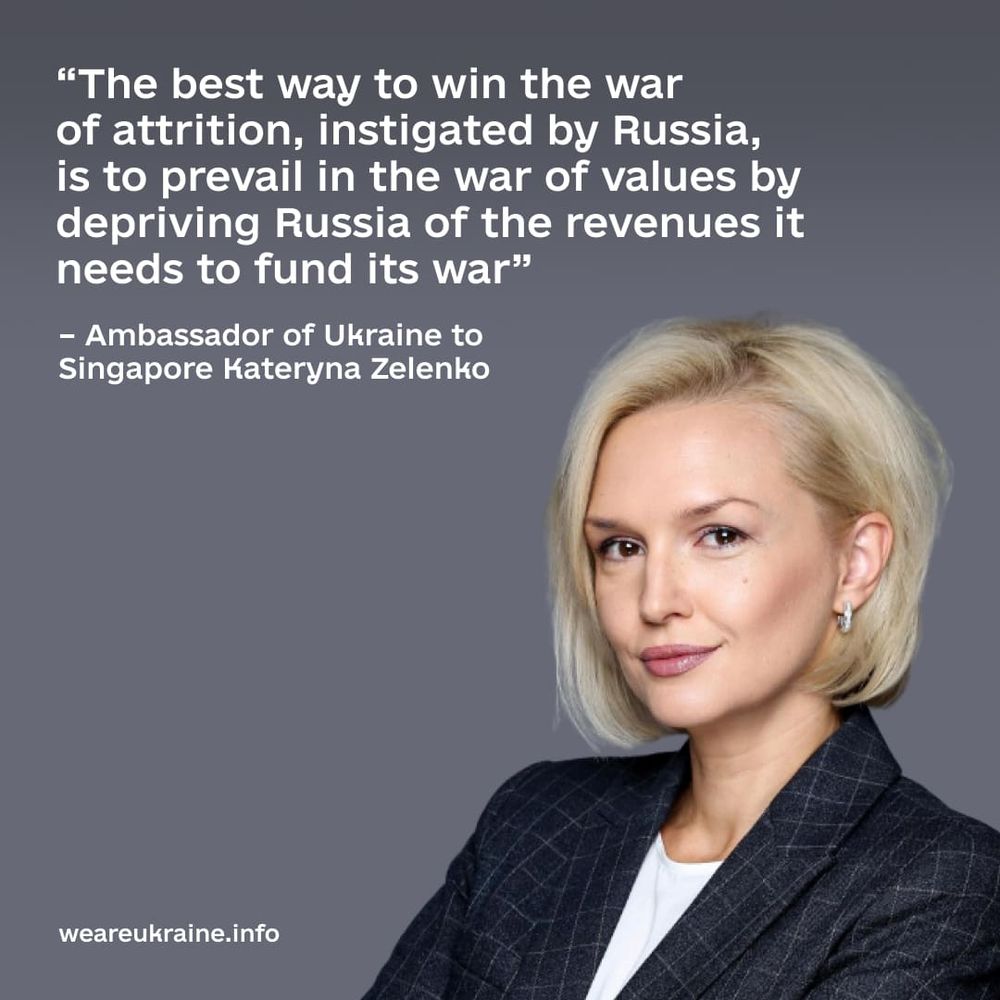
“Essentially, there are two wars we are dealing with today. The first is a war of attrition, instigated by Russia, causing everyday deaths, human tragedies in Ukraine, and devastating destruction. The second is the war of values: willingness to do business as usual versus tough sanctions, cutting off business, and economic isolation of Russia as an aggressor state. The best way to win the first war is to prevail in the second one by depriving Russia of the revenues it needs to fund its war,” the Ambassador of Ukraine to the Republic of Singapore H.E. Kateryna Zelenko said in her address to East Asian business at the opening of the Corporate Affairs Forum in Singapore on June 30, 2022.
According to the Yale School of Management, over 300 companies from all over the world have completely pulled out from Russia, but only 2% are from East Asia and the Pacific. Most of the region’s companies remain in the aggressor country despite the unprovoked and horrific war in Ukraine, either continuing full-scale operations or partially reducing some activities and keeping options open for a return.
Ambassador Zelenko reminded the business representatives that there are at least four reasons to exit Russia.
First, the rapid contraction of the Russian economy combined with the surging inflation will go hand in hand with a sharp fall in domestic demand and a shrinking of the Russian market.
Second, even if a company’s primary market is in Asia, it has to be cautious of the reputational risk of inaction. Even more, if it operates in Europe and/or the United States.
Third, Russians have low customer loyalty to brands and are eager to replace goods and services, either Western or Asian, with local ones as shown by the ZAMESTIM campaign launched in St. Petersburg in April 2022.
Last but not least, companies’ taxes submitted to Russia’s budget pay for the war, pushing people in East Asia and the Pacific into poverty and hunger. Russia’s war in Ukraine is to dampen the recovery in the East Asia and Pacific region via higher food and fuel prices, weaker international trade, and tighter financing conditions. Around 1.7 billion people in 25 countries in Asia and the Pacific are severely or significantly exposed to all three — food, energy, and finance — crises as a result of the war, according to the United Nations.